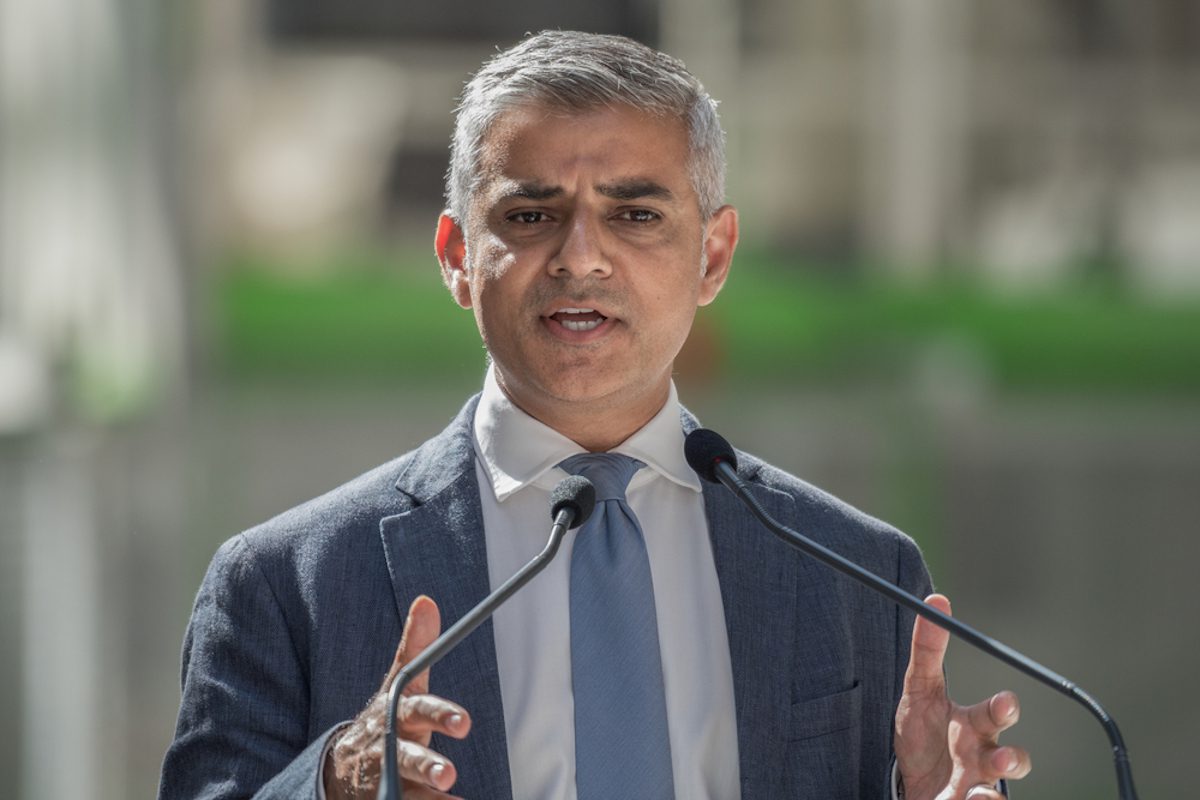
An international clean air summit, hosted on 23 October by the Mayor of London, attended by government ministers and the head of the World Health Organization (WHO) will see a group of city and business leaders launch a joint declaration to tackle air pollution.The signatories, which include 22 political and corporate leaders propose that Government and businesses should provide the resources and funding to meet world-leading WHO air pollution standards as a minimum to eliminate pollution from controllable sources. The new Environment Bill needs improvement in a number of ways to meet this, including world leading WHO air pollution standards on the face of the bill, a legally binding timetable with an earlier date for reporting, and an acknowledgement of the need for resources to implement the changes at local level.
The Clean Air Declaration proposes four priorities that Government need to take forward as urgent actions to eliminate air pollution, protect people’s health and to tackle the Climate Emergency: World Health Organization air pollution standards, as a minimum; programmes that support people to switch to active travel, public transport and stimulate the market for larger zero emission vehicles, including the creation of a £1.5 billion vehicle fleet renewal fund, increased powers to tackle the clean air and climate emergency; and an ambitious roadmap to 2030 that delivers clean air.
The International Clean Air summit has been convened by the Mayor of London, Sadiq Khan and UK100, a group of 95 mayors and local authorities. It will be attended by senior business leaders including Amazon, Google, Royal Mail, British Gas and Enterprise Rent-a-Car. 16 Mayors and local leaders from across the country including Birmingham, London, Leeds, Liverpool, and Manchester have supported the declaration.
They will be joined at the summit by Dr Tedros Adhanom, the Director General of the World Health Organization, Simon Stevens, the Chief Executive of NHS England, as well as UK Government Ministers. The summit will also hear contributions from the Mayors of Los Angeles and Lima, and Deputy Mayor of Warsaw.
Polly Billington, Director of UK100, a network of 95 local leaders that campaigns on clean air, said:
“Tackling toxic air pollution is a shared responsibility, that’s why the partnership we have announced today between central government, local leaders and businesses is so important if we are going to stop people dying needlessly. With the right funding and resources, we can all play our part.”
Andy Burnham, Mayor of Greater Manchester, said:
“Air pollution is an urgent matter of health injustice and inequality. The reality is that it is children in our poorest communities who are most exposed to polluted air. We owe it to them to act and act now.
“Greater Manchester is working hard to tackle air pollution, which is damaging our health and is linked to the equivalent of 1,200 early deaths each year in our city-region. It is our largest environmental risk to public health and it must be tackled as quickly as possible.
“But it is essential that central government supports areas like Greater Manchester with the costs of cleaning up our air, rather than landing the full cost on local people and businesses.”
Steve Rotheram, Mayor of the Liverpool City Region, said:
“Earlier this year we declared a climate emergency and addressing poor air quality is at the heart of responding to it.
“We are already taking action, through practical measures such as making it easier to walk and cycle safely, helping schools with travel planning and rolling out low-carbon vehicle technology.
“While we will do everything in our power to tackle air pollution we also need action from central government through measures such as adopting the WHO air pollution standards, vehicle scrappage schemes and funding for behaviour change programmes.”
Ben Lawson, VP Strategy, Enterprise Holdings, UK & Ireland
“We support the clean air declaration from the UK100. It is essential that if the government is serious about removing older and high polluting vehicles then it needs to implement a national scrappage scheme that provides people with mobility credits that can be spent on a combination of public, shared and active travel. This will expedite change and enable mobility as a service”
Edward Kulperger, VP Europe, Geotab, which specialises in GPS Fleet Management, said:
“Geotab believes that both the private and public sector need to come together to accelerate the adoption of connected transportation initiatives. The routing of people and goods through our communities by leveraging big data, electric and alternative fuel vehicles will reduce NOx, particulate matter and GHG while providing health and socio-economic benefits to our communities. Our society is at a crossroads. We need to commit significant investment in infrastructure and make wise choices to leave our planet better off for future generations.”
Gerry Keaney, CEO, British Vehicle Rental and Leasing Association (BVLRA), said:
“The BVRLA is pleased to add its support to the Clean Air Declaration. The fleet sector is an important bridge to achieving a net zero emissions future and reducing emissions in cities and towns. The environmental credentials of BVRLA member fleets show they outperform privately owned vehicles on carbon emissions, future Clean Air Zone/London Ultra Low Emission Zone compliance, Euro 6 Standards and road safety. Our sector recognises its influential role in this agenda, and we are willing to play our part.”
New Clean Air Zones & Fleet Renewal
A national network of up to 30 Clean Air Zones across England, including London, could be enhanced and unlocked if an additional £1.5bn is committed from Government and businesses to tackle air pollution in the most polluted towns and cities.
Under the UK100 plan, lower income residents and small businesses would be offered incentives of between £2,000 and £6,000 to either upgrade existing vehicles or get rid of their older, polluting vehicles and switch to a cleaner form of transport such as electric vehicles or public transport. As well as support for buying an ‘ultra low emissions’ vehicle, the cash could also be put toward car clubs, bike hire schemes or a public transport season ticket.







